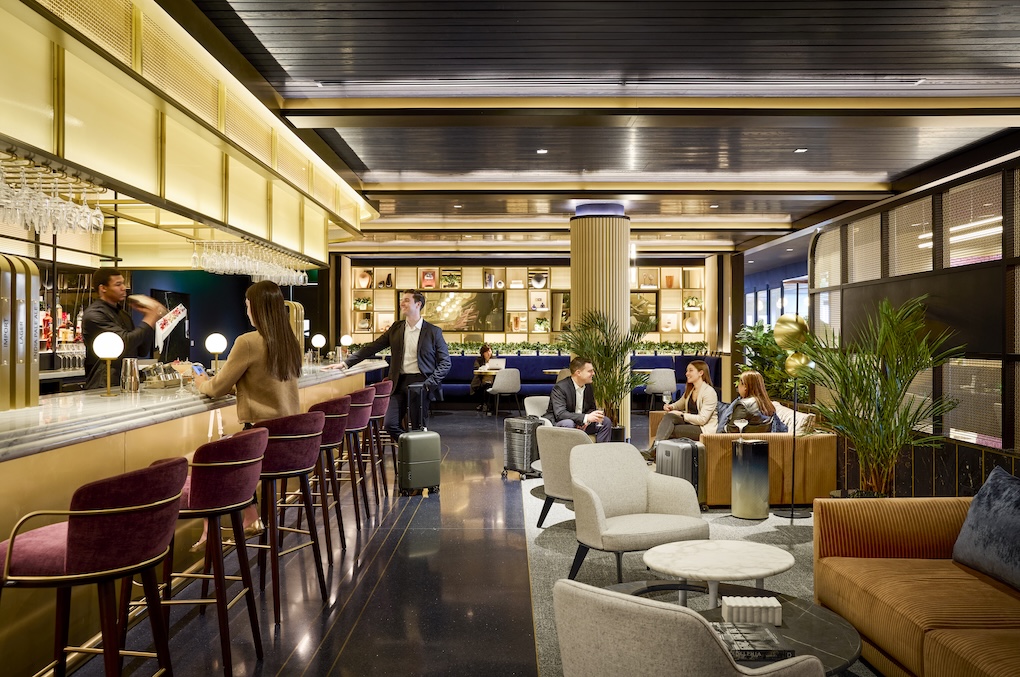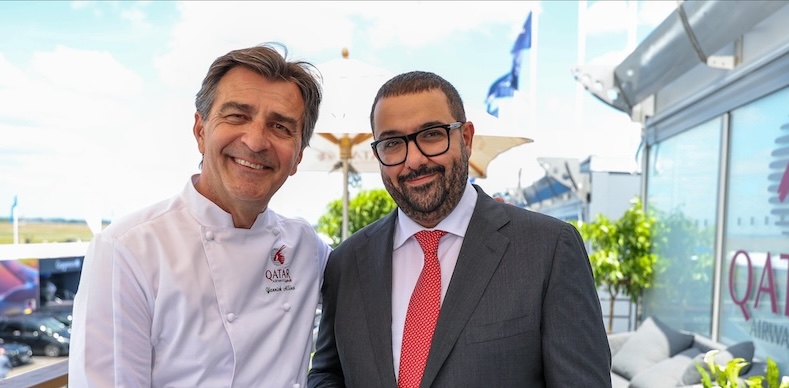USA. Reduce points of friction across the passenger journey; know your customer better; and remember that your business is always on.
Those were the key messages shared by customer experience and marketing author and consultant David Avrin in his entertaining and informative keynote address at the Airport Experience Conference 2020. The event concludes today (4 March) at the Gaylord Rockies and Convention Center in Denver, Colorado.
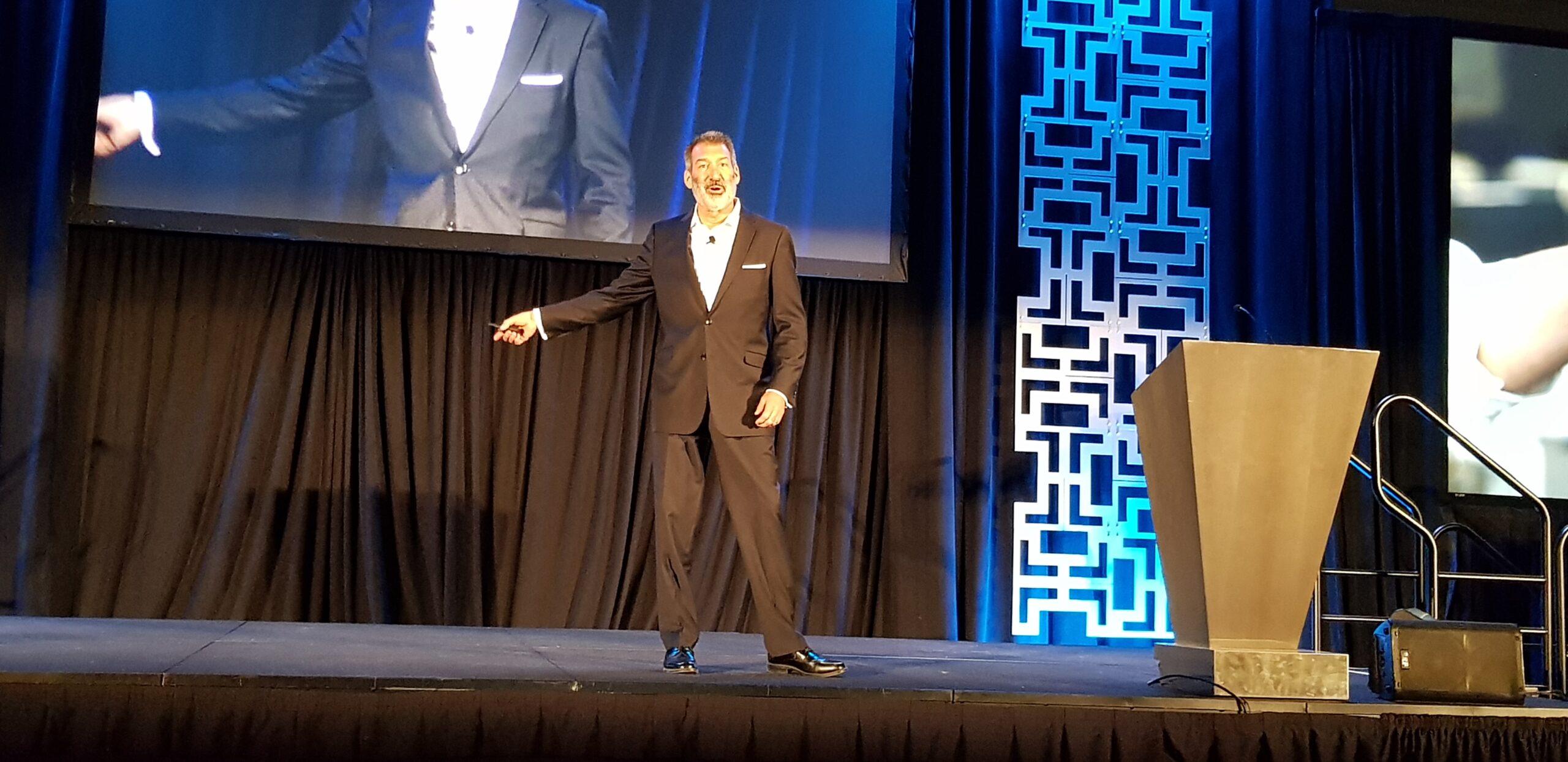
Avrin began his address by noting how the expectations and needs of the travelling public have changed in recent years. “It is said that technology and markets change but people don’t; but we do. We are more impatient and demanding because we can be.”
He also noted a shift from selling to buying: where previously people used to rely on salespeople for information, they can today do research themselves. “The power has shifted to the consumer,” said Avrin. “The marketplace has become a grocery store. In airports we buy what we want, and there are fewer people selling us things.”
This presents both challenges and opportunities. Where retailers had to be one of the best in their category to survive historically, they now have to be the best in areas that previously had no relevance, such as the ability to deliver and ship products.
For Avrin, the key term is disruption. “Historically there were incremental improvements to businesses. But disruption says look at everything from a completely different angle. Ask yourself: ‘If we were to start over, what would this business look like?’. Imagine if you were competing against yourself, how would you do it differently?”

Good businesses have shifted from a product-centric view to a customer-centric one, Avrin said, where the competitive advantage is a deeper understanding of travellers by utilising Big Data and heeding trends.
Avrin concluded by expanding on his aforementioned key messages. Customers today will fixate on points on frustration, so it is essential to reduce points of friction in the passenger journey. To achieve that goal, the mentality of both the business and its staff must change. “Help people adopt a mindset that their job is not to do their job, but rather to help the overall business,” he said.
“Your company must be remarkably easy to do business with. In the airport environment you have to be hyper-sensitive to the needs of customers. Be accommodating and swallow your pride, and give people choices.”
To know customers better, Avrin advised “not treating them as you want to be treated. Customers are different to you.” He also noted the importance of service empathy. “You don’t have to know your customer’s story but just know that they have one.”
Finally, he noted that in the modern world there was no way to hide a bad customer experience. “Do business as if every customer is armed with a video camera. Because they are.”
Food trends
Some of the latest trends in the world of food & beverage were discussed in a panel featuring Hunter Palmer Global Retail Solutions partner Keith Hunter, Keystone Hospitality Solutions’ Alan Someck and Menu Matters President Maeve Webster yesterday (3 March). The session was moderated by R.R. Ramsey Research Executive Director Rebecca Ramsey.
Webster began by questioning whether the industry had reached a point of “trend saturation”. “Are chefs and customers tired or chasing trends?” she asked. “Are too many companies not chasing solution-driven products but rather ones that look good? Why can’t we just have food anymore?”

She explained that trends themselves are not important, but rather what they tell us about the industry and the marketplace. “The challenge then is to apply this in a relevant and impactful way. Evaluate trends through the lens of a strong brand strategy.”
Someck discussed the importance of having strong sustainability practices. “The average customer can choose between a restaurant doing some good in the community versus one that does not,” he said.
“Restaurants who take the big view will have a competitive advantage. Customers are willing to pay more for quality and to eat sustainably. By implementing these practices you can create a stronger connection to your customers.”
Millennials and Gen Z are “screaming out for food adventures,” according to Hunter. “They want experiences, diverse menus and local food,” he said. “So do we carry on as we are or embrace the change?”

Integrating retail and food & beverage will be key, Hunter said, as part of a wider airport experience. “Implement spaces where customers can sit down and relax, be refreshed with food and drink, whilst being exposed to retail products,” he concluded.
Retail evolution
The second day of the Airport Experience Conference 2020 also featured a session on how travel retail is redefining itself, moderated by Reeb Airport Concessions Consulting owner John Reeb.
Kevin Brocklebank, of travel retail consultancy One Red Kite, said one of the key challenges facing the sector is to overcome passengers’ divided attention. “Why should passengers use retail and F&B when they have their smartphones?” he asked.

Travel retail has upped its game in response but must continue to do so, he said. Sense of Place has been a key factor, with both airports and brand helping to create memorable and relevant experiences. But alone it may not be enough to get people off their phones, Brocklebank said.
“We need to engage and stand out, and attract attention,” he explained, giving examples of eye-catching activations and executions from across both domestic and travel retail.
“What people really want is an emotion,” he noted. “This is what an experience will give them. Be different to get noticed, and create a memory.”
The challenge is to turn this into sales. The instore experience is vital, Brocklebank noted. “The digital experience is right for some people, but to get some people to trade up they need the personal touch or experience. The formula is simple: stand out from the crowd and provide great service and you will see better sales, even getting people to buy what they wouldn’t normally.”
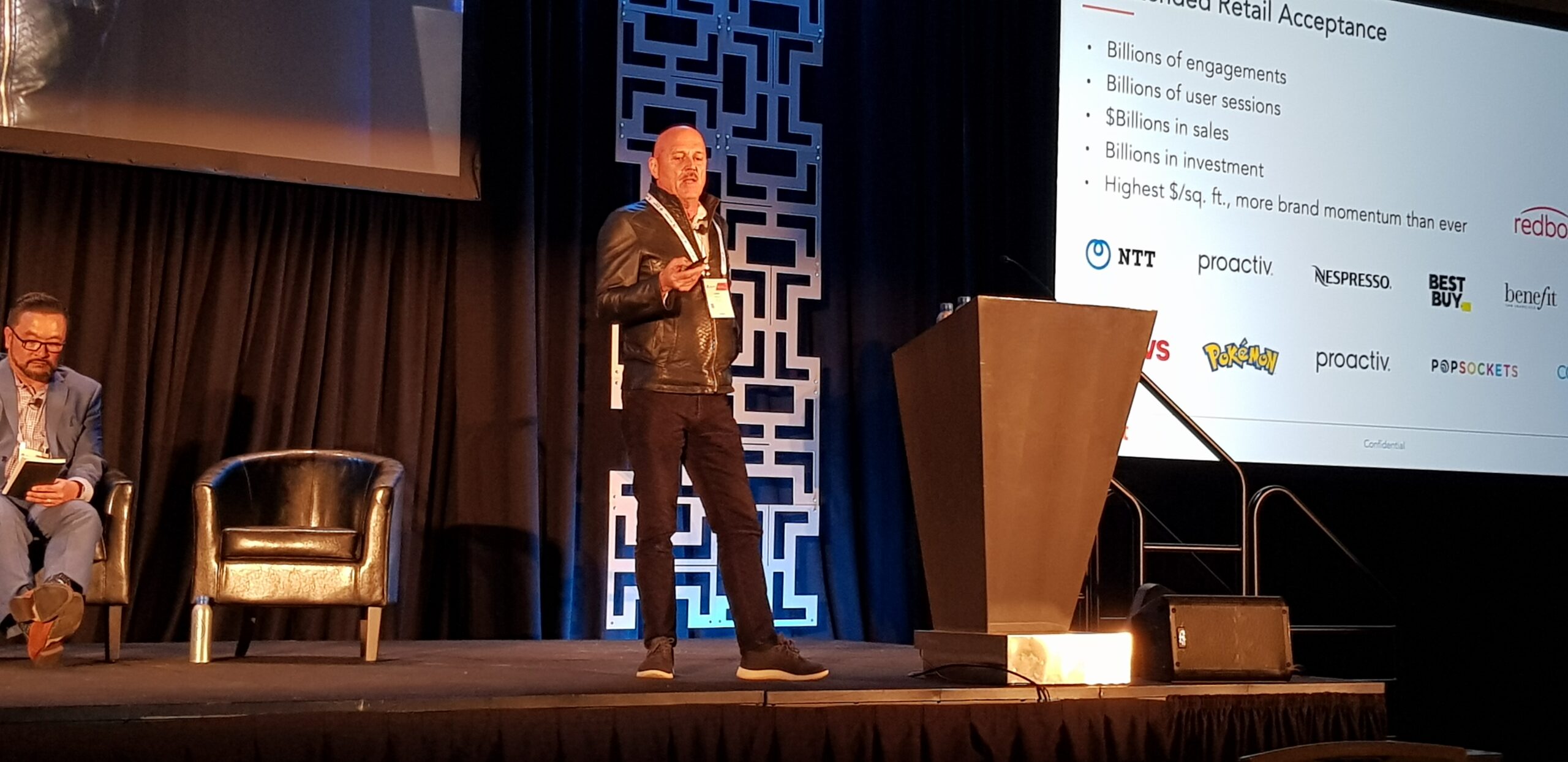
Gower Smith discussed the emergence and opportunities for automated or unattended retail. His company, Swyft, provides an automated retail solution that leverages the Internet of Things and managed services.
“We are in a convenience society. Younger consumers are tech-savvy and there is a wide acceptance of unattended retail,” he explained. “It is used by everyone regardless of gender or age.”
Consumers are willing to pay for convenience. “Combine this with fair pricing and you have a winning formula,” Smith said. “There is no limit to what can be sold in unattended retail. Everything is automated except for the manual delivery of items to be restocked.
“I see a future where you won’t be carrying an app but will be walking into an unattended retail experience.”
Airport view
The third day of the conference (4 March) began with a Director’s Panel moderated by Airports Council International Director General Angela Gittens.
Top of the agenda was the impact of COVID-19 on airports. “My worry is the front line employees,” said Jacksonville Aviation Authority CEO Mark VanLoh. “We have to have a constant communication with them.”
Dallas Love Field Director of Aviation Mark Duebner said the impact on domestic travel had not yet been felt, but noted that people were increasingly taking decisions not to travel to Europe or Asia. He expressed concern that passenger behaviours and the media hysteria were not in line with the facts.
“The real information we have says that there is a pretty small threat from COVID-19, but somehow that message is not getting out,” he said. “Our employees are worried but things like gloves are not effective. People wearing masks has a ripple effect on concessions and people’s activities in the terminal. As long as the hysteria keeps up it’s going to have an impact.”
Louis Armstrong New Orleans International Airport Director of Aviation Kevin Dolliole said the key was to be prepared for COVID-19, with many meetings, briefings and planning taking place at his airport. “There has been no impact yet but we have direct international services so it could happen sooner rather than later,” he explained. “New Orleans is a tourist destination and reliant on tourism so it is a big concern.”

Gittens noted that “so far the reaction has been worse than the disease”, but “as the saying goes, perception is fact”.
All panellists acknowledged there could be adjustments to their respective concessions programmes if the situation worsens and there is a significant decrease in enplanements. One measure could be to lower rents.
Duebner said that the COVID-19 situation would repeat itself in the future, and more should be done to prepare for such events. “We haven’t done a good job in airport design and structure in regard to what we do about these outbreaks,” he said. “We need to step back and challenge everyone to think about the next COVID-19. The resilience of airports is going to be tested. So what are we doing to put things in place to prepare for the next health scare?”
The panellists also discussed changes and trends in airport concessions programmes. “We have worked to readjust the balance between retail and F&B, which we found was out of whack,” said VanLoh. “More people want to eat and drink than shop.”
Duebner called for a better understanding of passenger behaviour through collaboration between stakeholders. “How do we dig deeper into the customer mind to find out what they want?” he asked. “Today it is often trial and error, but we want more technology and data on passenger behaviour, demands and profiling. We need to be able to respond to customer demand.
“Airport customers are the same; passengers don’t just use one airport. So data sharing is key. There is a lot of information that can drive decisions and that is where we as an industry have to go.”
Women take flight
The 2020 conference concluded with an inspiring panel session featuring women who are leading in airport management: Airports Council International Director General Angela Gittens; Cincinnati/Northern Kentucky International Airport Chief Executive Officer Candace McGraw; and Denver International Airport Chief Financial Officer Gisela Shanahan.
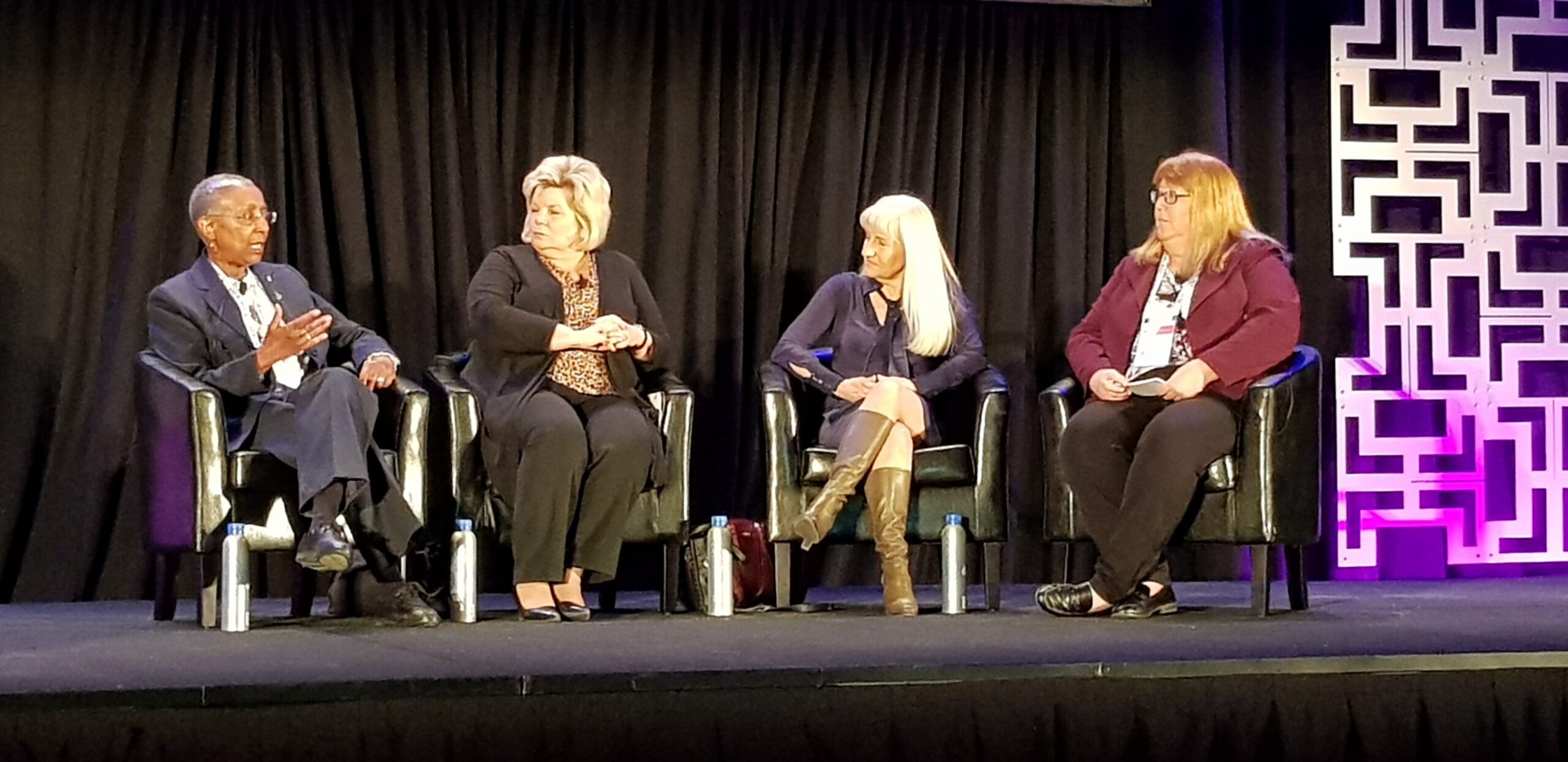
Gittens told the story of how she got to her current position, moving from a career outside the industry in which she was “known for getting things done”, to achieving exactly that in the airport world. “At first, I was not used to being in the spotlight, and it took some time to get to the point where I accepted and internalised being an executive,” she said.
McGraw and Shanahan similarly broke into the industry somewhat accidentally, with backgrounds in law and engineering respectively. “It’s a wonderful industry with fantastic people and issues,” said McGraw. “It is great running a small city within a city.”
Shanahan added: “I can’t imagine doing anything else now. It is rewarding and challenging at the same time.”
The trio expressed their hope that by sharing their stories they could inspire others and help them see avenues to executive positions in airports. Gitttens, McGraw and Shanahan also discussed the support and encouragement they had received from other women during their careers.
“It is important for women in top positions to be very visible, so women at the start of their careers can see what is possible,” said Gittens. All of the panellists agreed that there was great value in mentoring and mentorship programmes.
“Part of the issue is the pipeline,” said Shanahan. “There is not enough information for young women on the career paths that are available in aviation and at airports. A pipeline would be vital in helping to lift women up.”
Click here for our report from the first day of Airport Experience Conference 2020.
NOTE: The Moodie Davitt Report also publishes FAB, the world’s only media focused on airport (and other travel-related) food & beverage. The FAB Newsletter is published every two weeks and The FAB eZine every month.
Please send all news of food & beverage outlet openings, together with images, menus, video etc to Martin@MoodieDavittReport.com to ensure unrivalled global exposure.
The company also organises the annual Airport Food & Beverage (FAB) Conference & Awards. FAB 2020 will be held in Istanbul in September. Istanbul Airport will host the event, which will be a celebration not only of the best in international airport dining but also of Turkish cuisine and culture. FAB 2020 will be supported strongly by Tum & Ictur, the concessionaire managing 34,000sq m of food & beverage space at Istanbul Airport.





